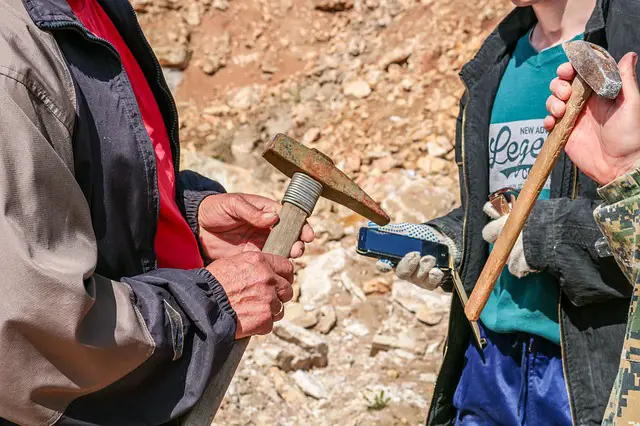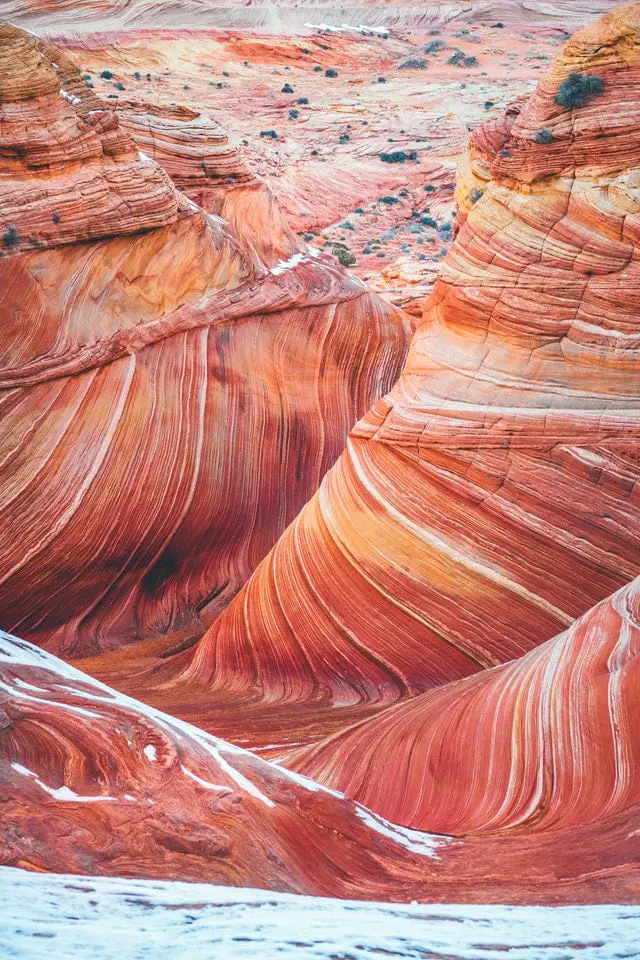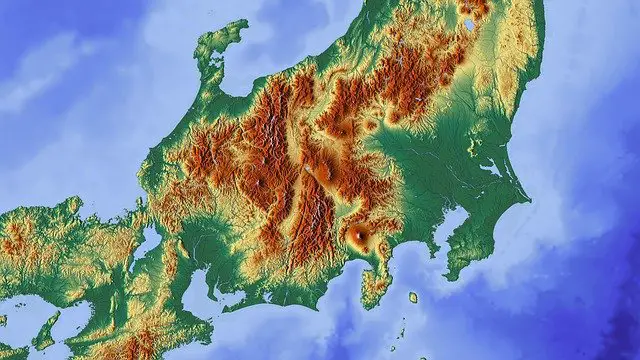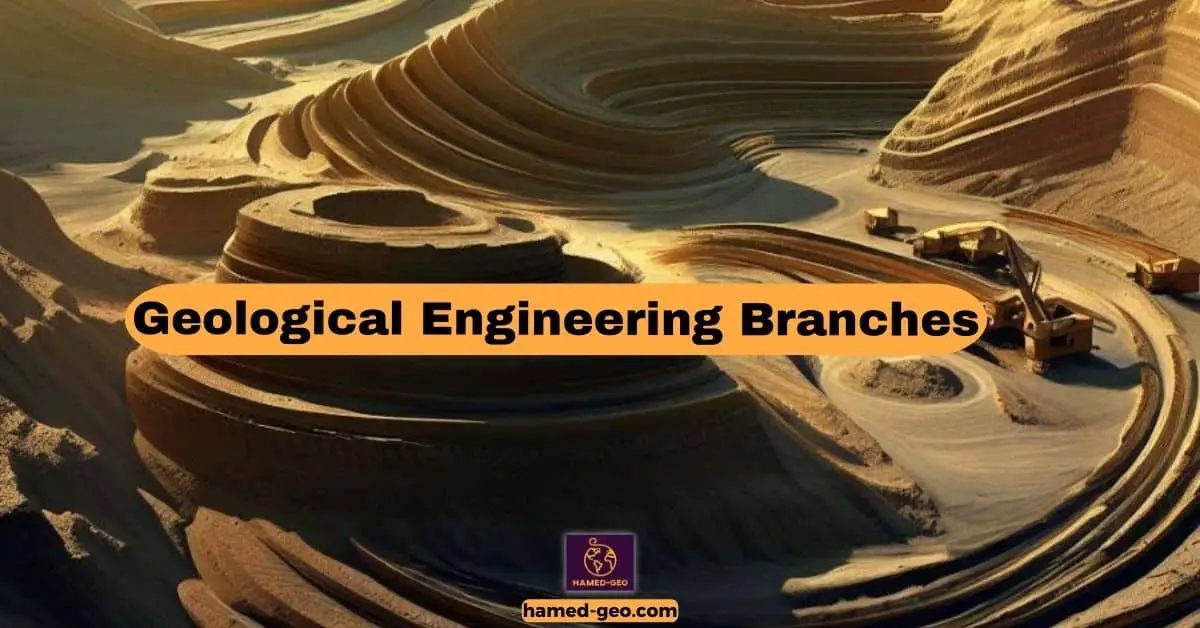Geology is the study of the Earth, the origin of the word from Greek Geo means “the Earth” and ology means “the study of”. Geology in the scientific definition is the study of the interaction between four elements of the Earth system, the hydrosphere, the atmosphere, the geosphere, and the biosphere. However, geology also includes the study of the moons and planets in our solar system.
The discipline of geology is a vast field and is subdivided into many areas. Here are a few fields with a simple definition.
1-Geophysics is the study of the principal methods of physics of the Earth, including seismology, gravity, magnetics, and electric techniques. Geophysics is used to explore oil, gas, minerals, and archeological sites.
2-Economic geology is the study of earth materials (rocks and minerals) that can be used, mined, and sold for economic purposes. These materials have economic value such as base and precious metals, nonmetallic minerals, and construction rocks.
3-Environmental geology is the study of the interaction between human activities and our geological environment to solve environmental issues.
4- Geochemistry is the study of the chemical composition and processes of the Earth and other planets which form and shape them.
5- Geomorphology is the study of landform origin and evolution formed by physical, chemical, and biological processes on or near the Earth’s surface.
6- Hydrogeology is the study of groundwater quality and movement in the crust of Earth and how it interacts with rocks and soil.
7-Paleontology is the study of fossils and ancient organisms and how they lived.
8-Petroleum geology is the study of geological disciplines to explore and produce oil and gas. These include the origin, distribution, movement, and accumulation of hydrocarbon.
9- Engineering geology is the using engineering principles combined with the application of geology to locate, design, construct, and maintain engineering works (roads, bridges, buildings, dams,..etc.).
10- Geochronology is the study of the history and age of the Earth’s rocks and fossils by absolute or relative methods.
11- Petrology is the study of rocks and minerals as well as their composition, origin, distribution, texture, and structure.
12-Remote sensing is acquiring detailed observations of Earth’s surface, ocean, and atmosphere without physically contacting items by satellites or aircraft.
13- Seismology is the field that uses seismic waves to study Earth’s interior. It is used for petroleum exploration and the study of earthquakes.
14- Stratigraphy is a geological discipline that studies different rock layers and their sequence, composition, correlation, and interpretation.
15- Structural geology is the study of the deformation of Earth’s crust rocks at a scale ranging from the microscopic to regional.
16- Crystallography is the study of the structure and properties of crystals.
17- Gemmology is the study of gemstones materials and their technical aspects for identification purposes.
18- Geoarchaeology is used to solve research problems in archaeology by using the application of geology.
19- Glacial geology is the study of sediments and rocks deposited by glaciers and ice sheets.
20- Geodynamics is the science that explains the present surface characteristics of the Earth as a result of internal forces (volcanoes, earthquakes, etc.).
21- Geohazard is a hazard of geological, geomorphological, or hydrogeological nature which have a threat to humans and their activities.
22- Geomechanics is the study of the mechanical behavior of rocks in the subsurface in response to changes in pressure and temperature.
23- Geotechnical engineering is the study of the principles of soil mechanics and rock mechanics for designing and constructing of foundations for various structures.
24- Tectonics is the study of forces and displacements that deform rocks within the lithosphere.
25- Geothermics is the study of heat transport and thermal conditions inside the Earth.
26- Historical geology is the study of Earth and life’s origin and its evolution through time.
27- Ichnology is the study of traces of living organisms beneath the surface such as borings, trackways, and burrows.
28- Marine geology is the study of all geological aspects of the ocean floor, continental shelves, and slopes and their structure and history.
29-Medical geology is the study of the relationship between natural geological processes and the health of humans and animals.
30- Mineralogy is the extensive study of the composition, structure, chemical, and physical properties of minerals.
31- Petrophysics is the study of the physical characteristics of a particular rock which are concerned with the pore and fluid distribution.
32- Volcanology is the study of the physical and chemical properties of the rising of magma through the Earth’s mantle and crust and its eruption on the Erath’s surface.
What Is A Geologist Do?

A Geologist study the physical, chemical, and biological characteristics, origins, and compositions of rocks and minerals. Indeed, the geologist explores the Earth’s materials for the resources used in our technology and our life, such as fossil fuels, minerals resources, underground water, and fertilizers. Also, geologists try to decrease the effect of the different types of natural environmental issues such as tsunamis, earthquakes, volcanoes, floods, and landslides.
Best Geological books for beginners and dummies
1- Geology For Dummies, by Alecia M. Spooner. Click on the below book image to get it from Amazon now.
2- Geology: A Complete Introduction (Teach Yourself) 1st Edition by David Rothery, Click on the below book image to get it from Amazon now.
3- Foundations of Earth Science (Masteringgeology) 8th Edition by Frederick Lutgens, Edward Tarbuck, Dennis Tasa. Click on the below book image to get it from Amazon now.
4- Earth: An Introduction to Physical Geology 13th Edition by Edward Tarbuck, Frederick Lutgens, Dennis Tasa, Scott Linneman. Click on the below book image to get it from Amazon now.
5- Focus on Geology Paperback by Dr. Karen M. Kortz, Jessica J. Smay. Click on the below book image to get it from Amazon now.




[…] What is geology […]
[…] What is geology […]
[…] What is geology […]
[…] What is geology […]
[…] What is geology […]
[…] What is geology […]